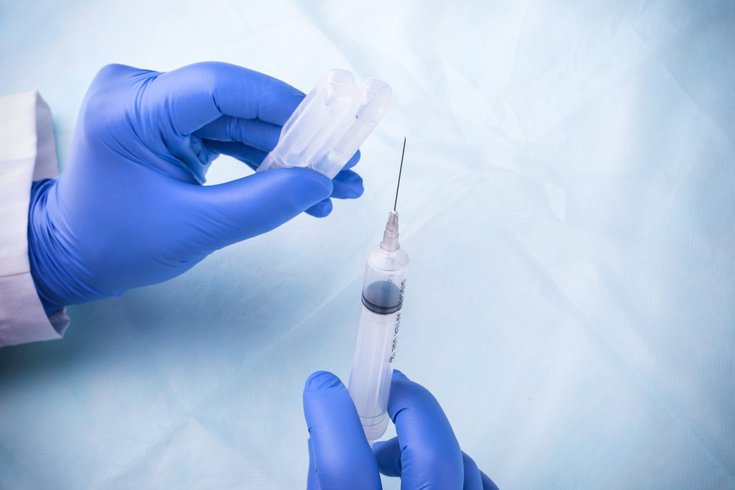
September 07, 2021
 Source/Image licensed from Ingram Image
Source/Image licensed from Ingram Image
Researchers are testing an oxycodone vaccine that may eventually be used to treat people with opioid use disorder.
A vaccine to treat drug addiction? Inoculations are commonly used to prevent infectious diseases like COVID-19, but they also may have the potential to treat substance use disorders.
A team of scientists from the University of Minnesota and Columbia University are studying an oxycodone vaccine that they hope can be used to treat opioid use disorders. They have launched the first clinical trial to test such a vaccine on people.
Current treatment approaches include a combination of medication and counseling and behavioral therapies. A vaccine may not just help treat addiction, but it also may prevent it from happening in the first place, advocates say.
"We have good medications to treat opioid use disorder, but about half of the people who use these medications relapse after about six months," said Sandra Comer, a Columbia University neurobiology professor and the trial's principal investigator.
"A vaccine that lasts for several months, given in combination with any of these medications, could help many more people beat their addiction and potentially protect them from an overdose death if a patient relapses."
Though there are not any federally-approved vaccines for opioid use disorder, it is not an entirely new concept. A similar vaccine that prevents opioids from reaching the brain also is being developed by Virginia Tech researchers.
This vaccine was developed by Marco Pravetoni, a University of Minnesota researcher who has helped conduct preclinical studies on a series of vaccines designed to counteract side effects caused by oxycodone, fentanyl and heroin. Those side effects include depressed breathing and depressed heart rate.
The oxycodone vaccine specifically stimulates the immune system's production of antibodies that prevent the drug from entering the brain and creating the high users crave.
Because it only targets oxycodone, researchers say the vaccine won't interfere with any Food and Drug Administration-approved drugs such as methadone, buprenorphone, naltrexone and naloxone.
In preclinical studies, animals that received the vaccine self-administered the oxycodone less and were protected from toxicity and signs of overdose, including respiratory depression.
"In this study, my laboratory will conduct pharmacokinetic and immunological monitoring in blood samples from immunized volunteers to ensure that they are making antibodies to oxycodone and determine whether the antibodies are preventing the drug from reaching the brain," Pravetoni said.
The Columbia University researchers will closely monitor the trial participants for adverse reactions to the vaccine and changes in their response to oxycodone after vaccination. The Phase 1 study plans to enroll up to 45 participants. Volunteers are still being enrolled at Columbia University in New York City and Clinilabs Drug Development Corporation in Eatontown, New Jersey.
"This medication approach is unique in that it can be used alone or in combination with other treatment medications and, importantly, may offer patients long-lasting protection against overdose if they relapse to opioid use," Comer said.
"The long-term goal of this program is to develop a series of opioid vaccines that target other commonly used opioids, such as heroin and fentanyl. We are very excited about this research and hope to eventually provide a safe, new treatment option for patients with opioid use disorder."
If the vaccine is found to be safe and effective at preventing the euphoric and toxic effects of oxycodone, the researchers hope that it can be another important tool against the current opioid epidemic.
Almost 50,000 Americans died from opioid-related overdoses in 2019, and new data from the U.S. Centers for Disease Control and Prevention shows that drug overdose deaths rose to 87,000 in 2020 during the pandemic, with a large percentage of the overdose deaths related to fentanyl and other synthetic opioids.
Because each type of opioid has its own unique chemical structure, a different vaccine will be needed for each opioid, researchers say. The teams at Columbia and the University of Minnesota are working to develop similar vaccines against heroin and fentanyl.
Health officials say these vaccines could be useful for at-risk individuals, patients in drug recovery programs and first responders who might accidentally be exposed to an opioid.